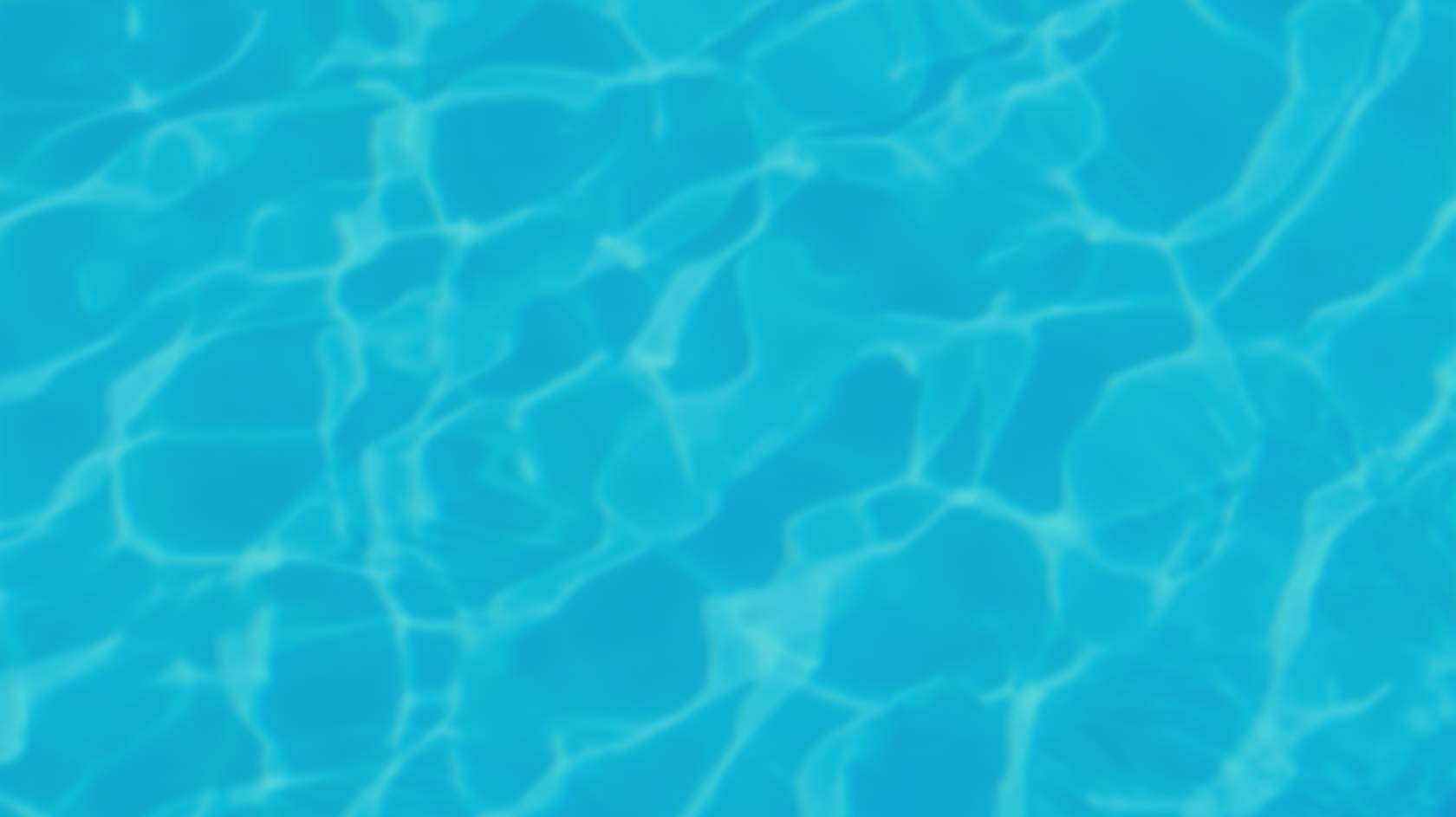
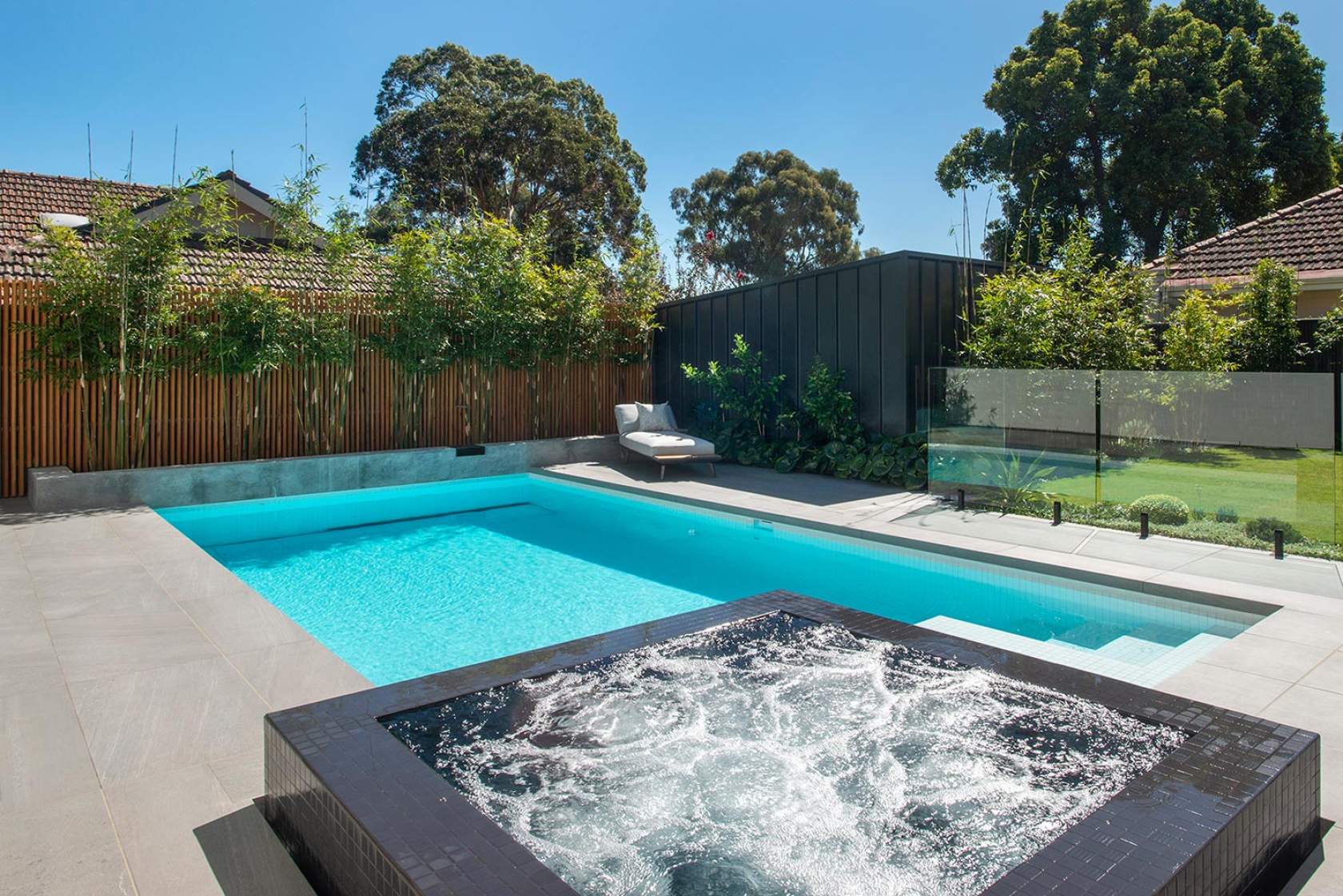
- Home >
- Caring for your Pool & Spa >
- Pool & Spa Equipment > Equipment Setup
Pool Equipment Setup

Most pools and spas follow a similar setup. A typical pool or spa setup will look like this.
If installing a heater, it needs to be placed after the filter but before the chlorinator.
The parts of a pool
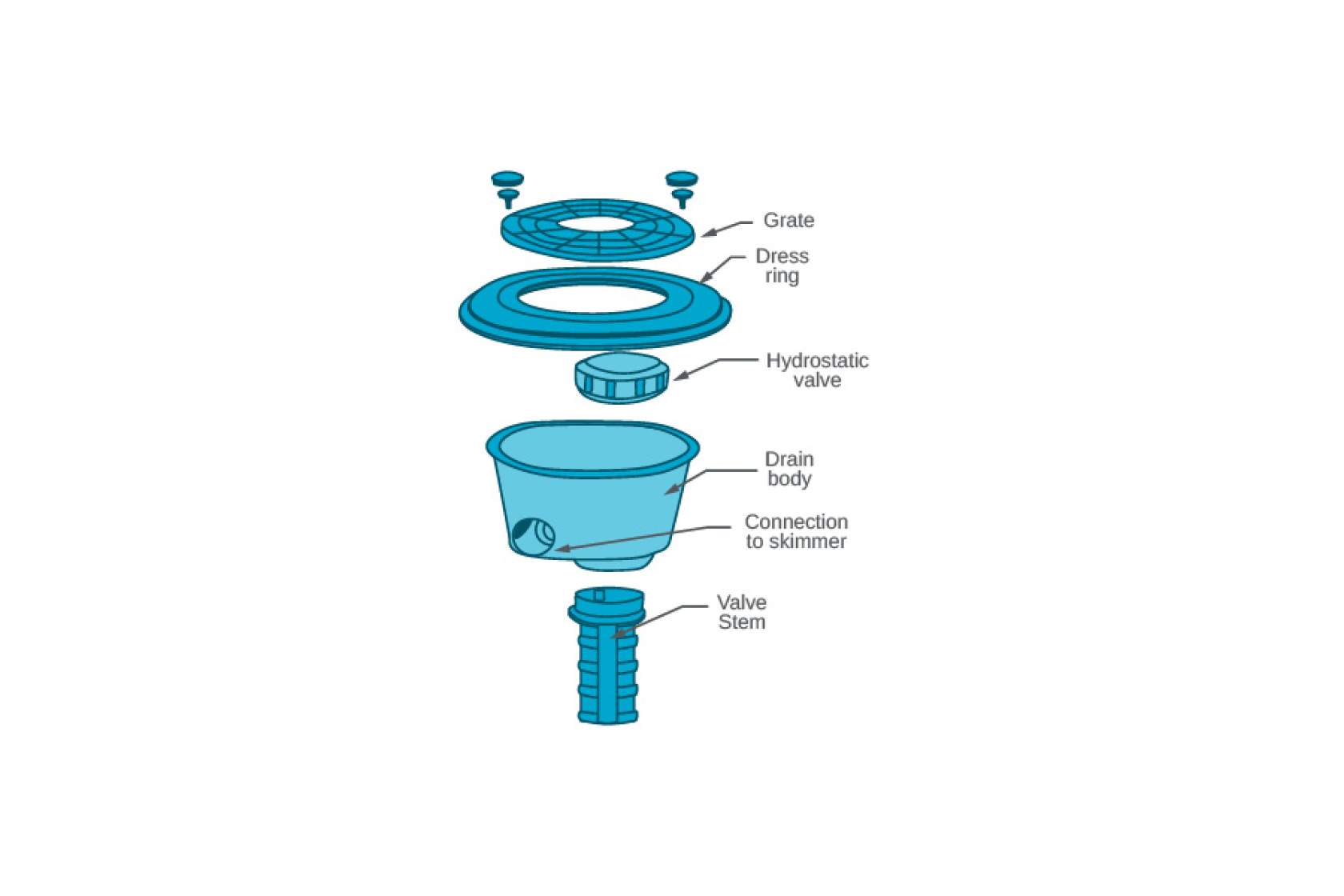
The main drain is in the deepest part of the pool. It has a pipe into its side which goes to the skimmer box. It also has a hydrostatic valve which lets water into the pool. If the water level outside the pool shell gets too high, in a flood for instance, this stops the pool from lifting out of the ground or cracking.
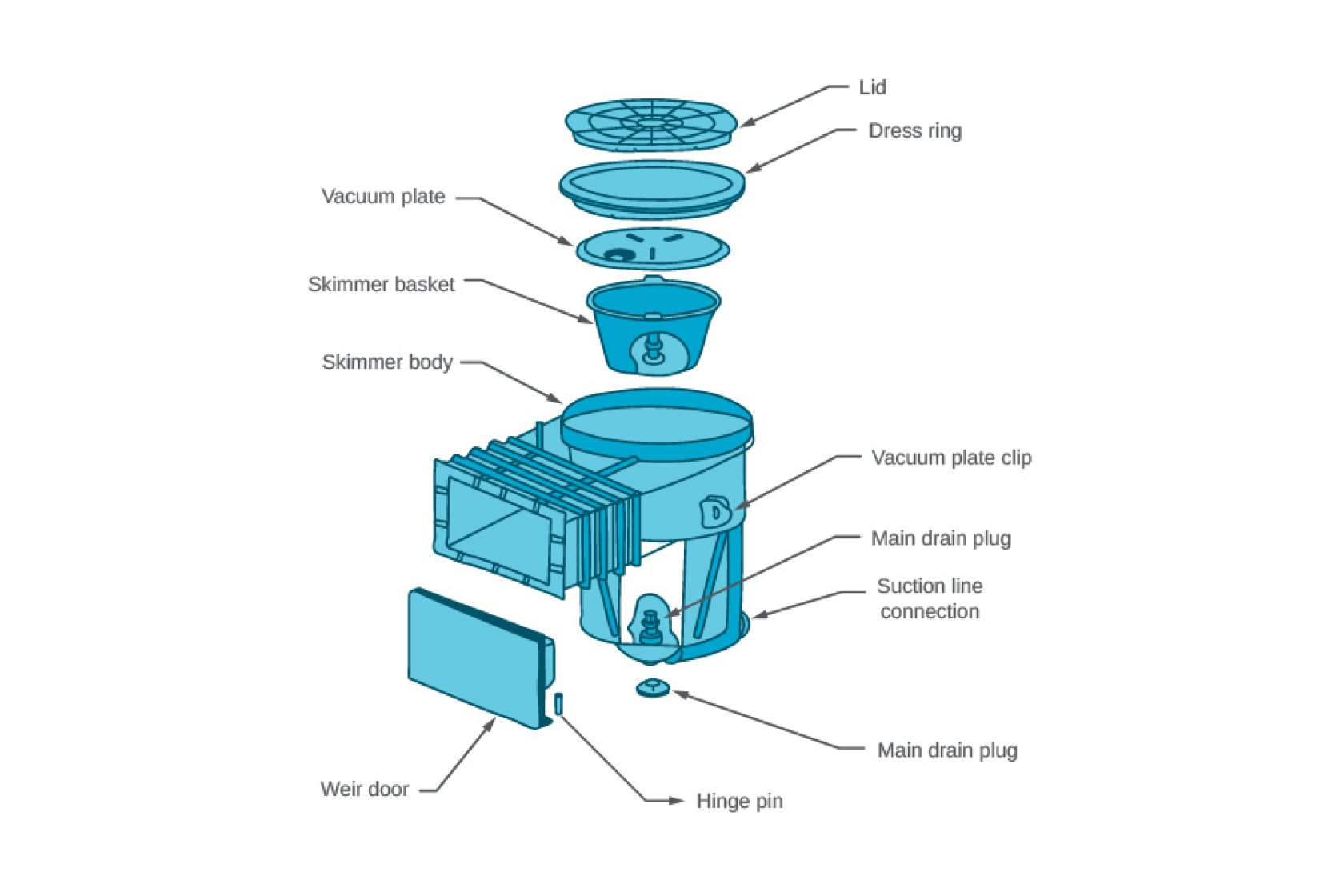
The skimmer box has a weir door at the front, which floats vertically when the pump is off stopping leaves and debris from going back into the pool. Inside is a plastic skimmer basket that collects leaves and other debris, stopping it from going through to the pump. Most pool owners put a skimmer sock on the skimmer basket to collect even finer debris.
A hole in the side of the skimmer box connects to the main drain, which allows suction, which can be varied by an adjustable plug. The hole in the bottom of the skimmer box connects to the pump and is called the suction line.
The water level of the pool should be kept between halfway and two thirds of the way up the weir door. Too high and leaves will not be skimmed from the surface, too low and the pump may run dry and burn out.
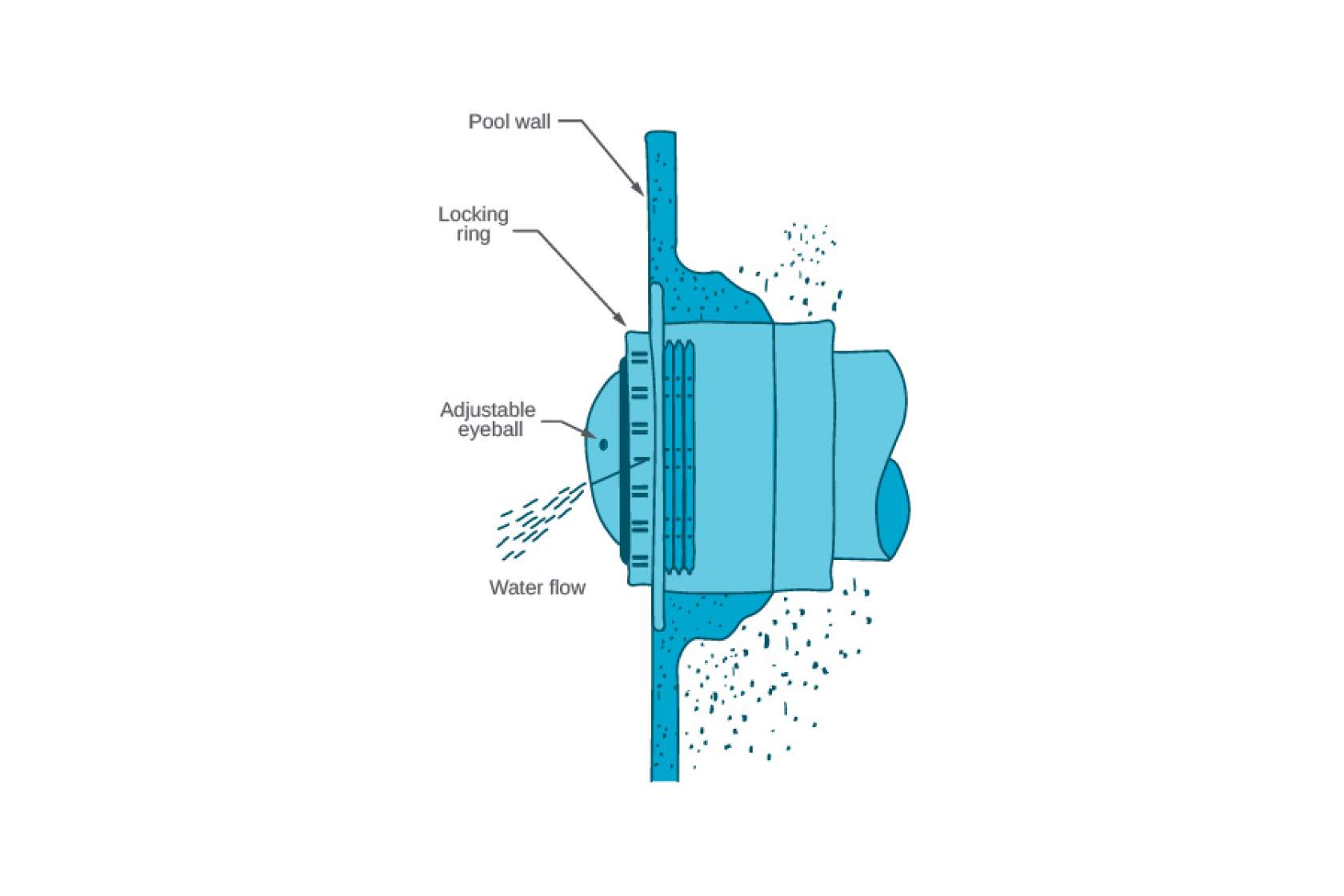
The return to pool is an adjustable eyeball fitting which can direct water to a part of the pool where algae may grow. The eyeball would normally be pointed towards the bottom of the pool; it should NOT be pointed up to the surface. There are usually two or three returns in an average pool.
Post installation works
Any additional building or other works undertaken near the installed swimming pool may have unintended consequences, such as:
ground movement and impact on land stability
undue impact or influence to the structural integrity of the installed swimming pool
damage to the swimming pools’ recirculation system
damage to connected swimming pool equipment
It is worth considering the impact of the following on your newly installed swimming pool and spa:
any electrical and equipotential bonding requirements (earthing)
drainage and the impact retained water may have in the pool and spa area
landscaping, retaining walls and other earth works
To prevent any damage post installation, additional building or other work should only be undertaken after seeking professional advice. Contact should be made with your SPASA pool builder or pool and spa technician for further advice.
Draining your swimming pool
You should NEVER drain your swimming pool. This is because draining the water from your swimming pool:
can cause irreversible structural damage to your swimming pool, its interior, surrounds and associated equipment if not done correctly
may affect your swimming pools’ warranty
should only be done in very specific circumstances, such as remediation or renovation
